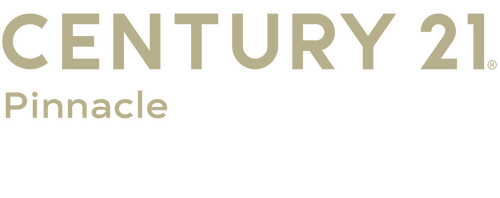Buying a home is one of the most significant financial decisions you’ll make. Fortunately, there are numerous programs available that can help make homeownership more affordable and accessible. Whether you’re a first-time homebuyer, a veteran, or someone with a lower income, there are options tailored to fit your needs. In this guide, we’ll explore key homebuyer assistance programs that can help you turn your homeownership dreams into reality.
1. FHA Loans: Federal Housing Administration (FHA) Loans
The FHA loan is one of the most popular government-backed mortgage programs, especially for first-time homebuyers. FHA loans require a lower down payment (as low as 3.5%) and are more lenient on credit scores. This makes them a fantastic option for buyers who may not qualify for conventional loans.
Key Benefits:
- Lower down payment (3.5%)
- More flexible credit requirements
- Allows higher debt-to-income ratios
Who Qualifies?
FHA loans are available to most buyers, but they are especially beneficial for first-time buyers or those with lower credit scores. Keep in mind that these loans require mortgage insurance.
2. VA Loans: Veterans Affairs (VA) Loans
For veterans, active-duty military personnel, and their families, the VA loan is one of the best mortgage options. VA loans require no down payment, no private mortgage insurance (PMI), and often come with competitive interest rates. This makes homeownership highly accessible for those who have served our country.
Key Benefits:
- No down payment required
- No PMI
- Favorable loan terms and interest rates
Who Qualifies?
Veterans, active-duty service members, and some surviving spouses are eligible for VA loans. You’ll need a Certificate of Eligibility (COE) to prove your qualification. You can request a copy of your COE here, or you can ask your preferred lender to obtain it.
3. USDA Loans: U.S. Department of Agriculture Loans
USDA loans are designed to help buyers in rural and suburban areas. These loans offer 100% financing, meaning you can buy a home with no down payment if you meet the eligibility criteria. They are also available to individuals with lower income, making homeownership more affordable for a wider audience.
Key Benefits:
- No down payment required
- Lower mortgage insurance costs
- Lower interest rates for eligible borrowers
Who Qualifies?
To qualify for a USDA loan, the property must be in an eligible rural area, and there are income limits depending on your location. These loans are ideal for those looking to purchase homes outside of major metropolitan areas. You can view an eligibility map here.
4. Kentucky First-Time Homebuyer Programs
Kentucky offers several programs to help make homeownership more affordable for first-time buyers and those with moderate to low incomes. These programs provide assistance with down payments, closing costs, and competitive mortgage rates, making it easier for residents to purchase a home.
Kentucky Housing Corporation (KHC) Loans
The Kentucky Housing Corporation (KHC) offers affordable mortgage programs with down payment assistance for eligible homebuyers. These loans can be used by first-time homebuyers or anyone purchasing in certain targeted areas of the state.
Key Benefits:
- Competitive fixed interest rates
- Up to $10,000 in down payment assistance
- Conventional, FHA, VA, and USDA loan options available
KHC Down Payment Assistance Programs
In addition to offering affordable loans, KHC also provides down payment assistance to help cover upfront costs. There are two types of assistance available:
- Regular DAP: Offers up to $10,000 in down payment and closing cost assistance, repaid over 10 years at a low fixed interest rate.
- Affordable DAP: Offers up to $10,000 in assistance with a 0% interest rate for borrowers who meet income and credit guidelines.
Who Qualifies?
To qualify for KHC loans or down payment assistance, you must meet specific income and purchase price limits. Additionally, most programs require that you complete a homebuyer education course.
Lexington-Fayette Urban County Government’s Homebuyer Assistance
Residents of Lexington-Fayette County can take advantage of the Homebuyer Assistance Program, which offers up to $15,000 in forgivable loans to help with down payments and closing costs. The program aims to make homeownership more affordable by offering low-income buyers a leg up in the homebuying process.
Key Benefits:
- Up to $15,000 in forgivable loans
- No monthly payments required
- Assistance for qualifying low- to moderate-income buyers
Who Qualifies?
Buyers must meet income requirements, purchase a home in Fayette County, and live in the home as their primary residence for a specified period.
5. Good Neighbor Next Door (GNND) Program
The Good Neighbor Next Door program is a HUD initiative aimed at helping law enforcement officers, teachers, firefighters, and EMTs buy homes in revitalizing areas. This program offers homes at a 50% discount, provided you commit to living in the home for at least three years.
Key Benefits:
- 50% off the list price of the home
- Low down payment options (as little as $100)
Who Qualifies?
Law enforcement officers, teachers (Pre-K through 12th grade), firefighters, and emergency medical technicians are eligible. You must also agree to live in the home for a minimum of three years.
6. Conventional 97 Loan
If you’re looking for a conventional mortgage with a low down payment, the Conventional 97 loan might be a good fit. This loan allows you to purchase a home with just 3% down and is available through most lenders.
Key Benefits:
- Low down payment (3%)
- No upfront mortgage insurance premium
- Available for first-time and repeat buyers
Who Qualifies?
Buyers must have good credit and the home must be a primary residence. Unlike FHA loans, there are no upfront mortgage insurance costs, although private mortgage insurance (PMI) is required.
7. HomeReady and Home Possible Loans
Fannie Mae’s HomeReady and Freddie Mac’s Home Possible programs are conventional loans that cater to low- to moderate-income buyers. Both loans offer low down payment options (as little as 3%), lower mortgage insurance costs, and flexible guidelines.
Key Benefits:
- Low down payment (3%)
- Lower mortgage insurance costs
- Flexible income guidelines
Who Qualifies?
These programs are ideal for first-time homebuyers with moderate incomes. Borrowers must meet specific income requirements, which vary based on the location of the home.
Final Thoughts
Whether you’re a veteran, a first-time homebuyer, or someone looking for financial assistance, there are numerous programs designed to make buying a home more affordable. By reducing down payment requirements, offering lower interest rates, and providing valuable financial assistance, these programs can help turn homeownership dreams into reality.
When exploring your options, research eligibility criteria, loan limits, and any additional costs like mortgage insurance. Working with a knowledgeable lender or real estate professional can help you navigate these programs and find the best one for your unique situation.
Need Help Finding the Right Program?
If you’re ready to explore your options, James is here to guide you through the process. He specializes in helping veterans, first-time buyers, and those seeking affordable housing solutions. Contact him today to learn more about how he can assist you on your homeownership journey.
The information provided in this article is for general informational purposes only and does not constitute financial advice. Eligibility for the homebuyer programs mentioned may vary based on individual circumstances, income, credit history, location, and other applicable criteria. Loan terms, interest rates, and assistance options are subject to change and may differ by lender. To determine which programs are right for you and to get accurate, up-to-date information, it is important to consult directly with a qualified lender or financial advisor. Always seek professional guidance when considering a home loan or assistance program.


 Facebook
Facebook
 X
X
 Pinterest
Pinterest
 Copy Link
Copy Link


